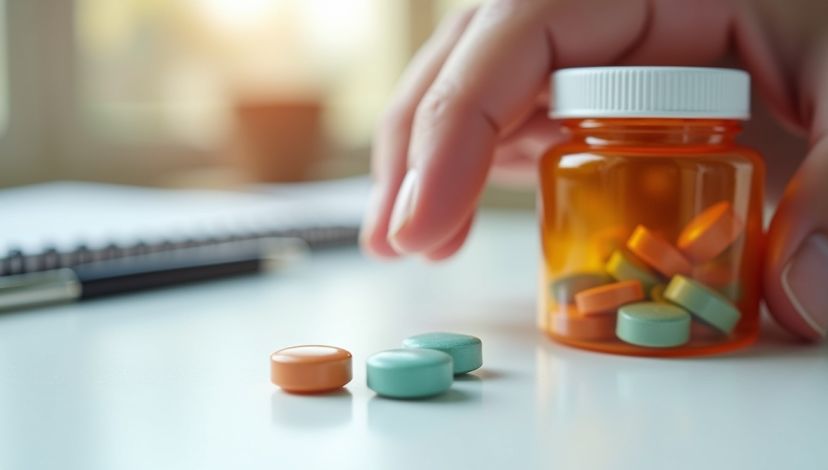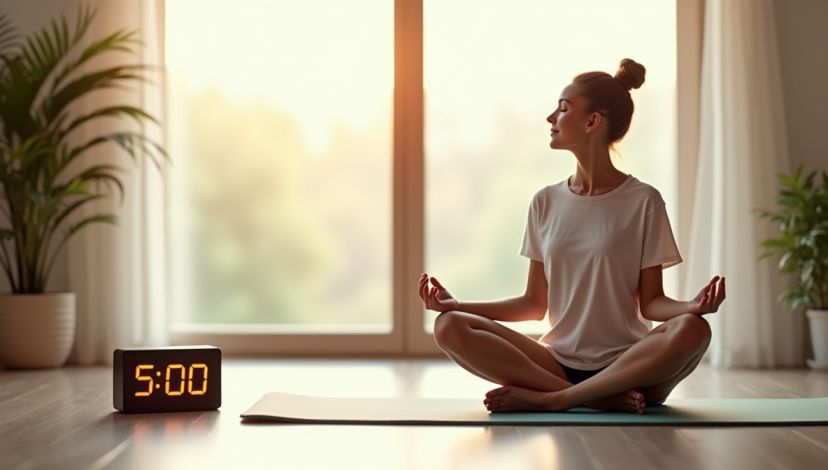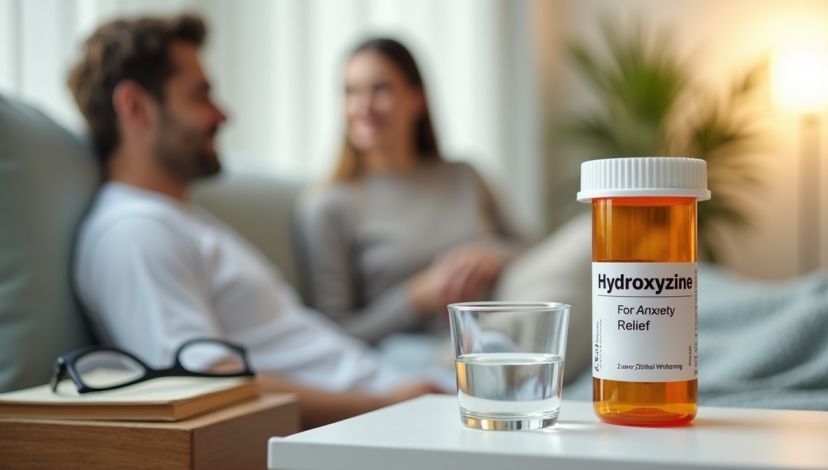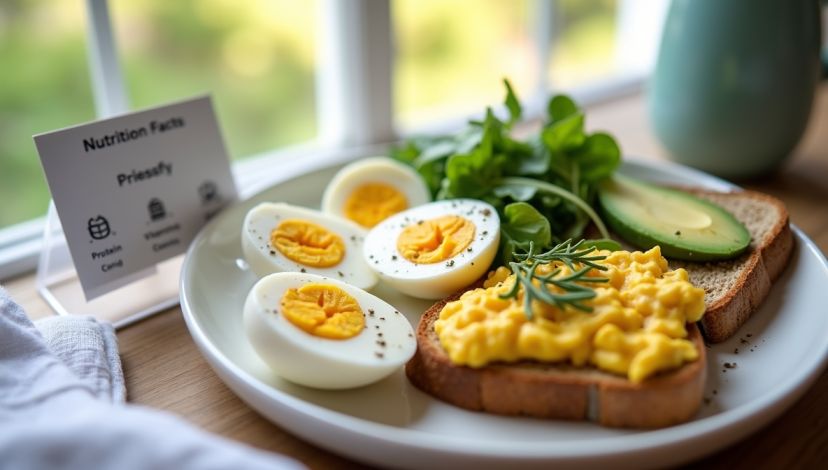Propranolol for Anxiety: Find Fast Relief and Regain Control

Anxiety is not fun, especially when the physical manifestations of the problems engulf you at some of the most inopportune times in your life, such as sweaty palms, racing heart, or trembling hands. These symptoms become an issue for many people, students, or professionals before they give an important talk, exams, or meetings. If you’re looking for a solution that targets the body’s stress response, propranolol for anxiety could be a game-changer.
Table of Contents
- What does Propranolol do in Anxiety?
- The Propranolol vs Other Philofarm drugs used in anxiety treatment Compared.
- Who Should Consider Propranolol for Anxiety? Such Precautions (Use Cases and Precautions)
- Side Effects, Dosage, and What to expect
- Research, Trends, and the Future of Propranolol for Anxiety
- Conclusion
- FAQs
Propranolol is a drug that was initially used as a medication to treat heart diseases, and it has become a more popular drug to counter the physical symptoms of anxiety. Propranolol does not have any direct influence on your thoughts or feelings, unlike the traditional anti-anxiety medications. Rather, it makes you to take control of your body back so that you can be able to confront stressful circumstances with ease.
If you’ve ever wished you could calm your nerves before a big event, or if you’re searching for a fast-acting remedy for performance anxiety, this article will guide you through everything you need to know about propranolol for anxiety. We will discuss what it entails, its most suitable people, how it fares against any other treatment, as well as what real users and professionals say.
Key Takeaways:
- Propranolol causes a lessening of physical symptoms of anxiety, including high heart rate and tremors.
- It works well with performance anxiety or situational anxiety, but it does not work as well with generalized anxiety.
- Consult your healthcare provider to determine if propranolol for anxiety is the right choice for you.
What does Propranolol do in Anxiety?
Propranolol is a beta-blocker medicine, which prevents the effects of adrenaline and noradrenaline, hormones that cause a situation where the body either fights to the death or runs away in panic. In this way, it contributes to reducing the heartbeat, decreasing the pressure, and minimizing such symptoms of the heart rate as profuse sweating and trembling.
When you become anxious, you develop stress hormones in the body that causes body discomfort reactions. Propranolol does this, and hence it becomes easy to remain calm during stressful situations. It does not deal with the mental components of anxiety (worry or fear), but it can be an effective resource to someone whose primary concern is physical.
Real-Life Example:
And here is a student, Sarah, who is really frightened when she needs to make presentations in college. She has shaking hands, a trembling voic,e and her heart is pounding loudly as she finds it difficult to concentrate. Sarah also attempts to use propranolol and does so after she consults her doctor prior to her next major speech. She also feels calmer and more controlled and this enables her to give her presentation with a new sense of confidence.
Expert Insight:
Dr. Muhammad Munir, a psychiatrist, better explains why propranolol works among anxious individuals by stating that it blocks the effect of chemicals that act as messengers in the body, such as noradrenaline and adrenaline. It is a useful means of alleviating anxiety discomfort; nevertheless, adverse effects must be borne in mind, as in any drug”.
Note: Propranolol is not a treatment of the anxiety condition; however can be a useful component as a troupe therapy, particularly with regards to situational or performance anxiety.
The Propranolol vs Other Philofarm drugs used in anxiety treatment Compared.
Most individuals are curious to know how propranolol compares with other mainstream therapies for anxiety. The solution depends on your individual requirements and the nature of the anxiety that you come across.
Propranolol has the most impact on the physical symptoms of anxiety, where it is best, especially in cases such as public speaking and performances. Conversely, the drugs, such as benzodiazepines (namely, Xanax) and antidepressants (namely, sertraline), address both mental and bodily elements of anxiety, yet they also have their dangers and advantages.
In the table below, the main differences have been highlighted:
| Medication | Main Use | Onset Time | Targets Physical Symptoms | Targets Mental Symptoms | Risk of Dependence | Typical Use Case |
| Propranolol | Performance anxiety | 30–60 minutes | Yes | No | Low | Public speaking, exams |
| Benzodiazepines | Generalized/panic anxiety | 15–60 minutes | Yes | Yes | High | Panic attacks, severe anxiety |
| Antidepressants | Generalized anxiety | 2–6 weeks | Some | Yes | Low | Long-term anxiety management |
Comparison of the conditions, propranolol vs. Benzodiazepines vs. Antidepressants concerning anxiety is presented in Table 1.
ALT text: Compare the table of the onset, symptoms to treat, and use of common anxiety medications.
Research Findings:
A 2015 systematic review noted that propranolol is effective in treating performance anxiety but not as effective in the treatment of generalized anxiety disorders, when medicines, such as antidepressants, or therapy, can be better choices.
Expert Quote:
The Beta-blockers, such as propranolol, are an off-label anti-anxiety medication. They are excellent at quickly alleviating physical symptoms and, as such, they are perfectly positioned to be used as short-term, as-needed treatment options, explains Talkiatry, one of the leading mental health providers.
Who Should Consider Propranolol for Anxiety? Such Precautions (Use Cases and Precautions)
Not everyone will be able to take propranolol, but it will be an option that can certainly change the lives of some people. It is mostly prescribed:
- Performance anxiety (stage fright, speaking in front of the audience)
- Exam or test Anxiety
- Physical events induced by the social events
- Anxiety in specific situations accompanied by firm somatic responses
Use Case:
Jake was a musician; he also experienced tremors prior to performances. Following the initiation of the administration of propranolol by his doctor, he reported feeling calmer in his hands and thus played his best.
Who is not to take Propranolol?
- Asthmatics or individuals with some heart problems
- People with ultra-low blood pressure
- patients who have severe problems with their circulations
- Expectant women or those who are breastfeeding (consult your doctor)
Important Reminder:
Always consult a healthcare provider before starting propranolol for anxiety, especially if you have underlying health conditions or take other medications.
Safety Considerations:
Propranolol is accepted quite well, yet side effects are possible. Most of them are dizziness, fatigue, cold hands or feet, and sleep changes. Occasionally, severe reactions, which happen rarely but are quite serious, like allergic reactions or a severe decrease in blood pressure, need medical attention.
Side Effects, Dosage, and What to expect
Knowing about all the potential side effects and the general usage of propranolol as a medicine against anxiety will allow you to make a responsible choice.
Side effects common to all of them:
- Light-headed or dizzy
- Exhaustion or even the feeling of tiredness
- Cold extremities ( hands or feet )
- Belly pain or nausea pain
- Disturbance of sleep (insomnia, vivid dreams)
- Low sexual desire (uncommon)
Side Effects that are not so Common but Serious:
- Hallucinations
- Inability to remember or perversity Loss
- Grave allergic reactions (turn out to be strenuous, have problems breathing)
- Extremely low heartbeat rate
The side effects are mild and assuage as the body adapts to most people. In case of persistence or aggravation of the symptoms, refer to your doctor.
Dosage Overview:
- Propranolol for anxiety is often prescribed as a single dose (10–40 mg) taken 30–60 minutes before a stressful event.
- In the case of chronic anxiety, your physician can propose a daily dosage; however, not frequently, and not necessarily.
- The dosage is dependent on age, health conditions, and symptom severity.
Table 2: Common Side Effects of Propranolol for Anxiety
| Side Effect | Frequency | Management Tips |
| Dizziness | Common | Sit or lie down until it passes |
| Fatigue | Common | Take at bedtime if possible |
| Cold hands/feet | Common | Dress warmly, monitor symptoms |
| Nausea | Occasional | Take with food |
| Sleep disturbances | Occasional | Monitor and adjust timing if needed |
| Allergic reaction | Rare | Seek immediate medical help |
Table 2: The most commonly described side effects with ways to manage them.
ALT text: Table of side effects, frequency, and tips on management of propranolol.
Personal Experience:
One of the reviews by users in Drugs.com says, “I realized that after a few days of application of the propranolol, my body felt much less morbid and calm, and my heartbeat rate appeared to slow down, and I felt I could control my anxiety much better”.
Remember: In case you have some abnormal or serious adverse reactions, discontinue propranolol and call your health care provider.
Research, Trends, and the Future of Propranolol for Anxiety
Although propranolol has a decades-long history, there is an ongoing research on propranolol in treating anxiety. Its effectiveness is supported by most studies in the context of performance anxiety, but there is less evidence on its use in the generalized anxiety disorders in the long run.
Recent Trends:
- Propranolol is used more and more as an off-label drug to treat anxiety, particularly in professionals, students, and performers.
- Online mental health service and telehealth are now providing propranolol prescription following a remote consultation.
- A current study is underway to determine its effectiveness in the treatment of post-traumatic stress disorder (PTSD) and other anxiety-associated disorders.
Expert Opinion:
The outcome of a systematic review published in 2015 is as follows: the available evidence regarding the efficacy of propranolol as a treatment of anxiety disorders is currently inadequate to warrant routine administration of propranolol in any of the anxiety disorders, but it is beneficial in certain circumstances, such as performance anxiety.
Data Snapshot:
- More than 40 million American adults deal with anxiety annually.
- There are 66 percent of positive experiences with off-label anxiety treatment using propranolol, which gives the drug a user rating of 7.3 out of 10.
Looking Ahead:
It is also predicted that the use of propranolol will be increased as the world is increasingly becoming more anxious and requiring quick, non-addictive solutions to relieve anxiety.
Notable Note: Propranolol is meant to be just a part of an intensive reduction of anxiety program, which can also involve therapeutic sessions, changes in lifestyles, and other medication requirements.
To read more about holistic management of anxiety, please visit our article Ketamine Therapy For Depression: Fast Relief and Brain Healing
Conclusion
Propranolol for anxiety offers a unique solution for those whose main struggle is with the physical symptoms of stress. Propranolol can make you reach the peak of your performance under very crucial conditions by relaxing your heart and inhibiting tremoring or perspiration.
It is particularly effective in performance or situational anxiety, not so much in situation-perpetuated, general anxiety problems. The side effects tend to be mild, and their use should always be advised by the medics to make sure that the patient is safe and fit to take propranolol.
Key Takeaways:
- As a relief to the physical symptoms of anxiety, propranolol is one of the least-addicting, quick-acting types of remedy.
- It is only suitable in certain cases that are short-term, not as an everyday, long-term medication.
If you’re considering propranolol for anxiety, talk to your doctor about your symptoms, medical history, and treatment goals. You can then collectively determine whether the drug should be instituted into your bigger picture regarding anxiety management and enhancement of the quality of life.
FAQs
Q1: What is the speed of action of propranolol in instances of anxiety?
A: The effect of propranolol begins after about 30-60 minutes; this is why it can be used before the event of stress.
Q2: Is propranolol as addictive as other classes of drugs to relieve anxiety?
A: No, propranolol is neither addictive nor produces any dependence compared to benzodiazepines.
Q3: Is it possible to take propranolol administered daily in the long term in order to manage anxiety?
A: Propranolol can only be used in the short term or situational anxiety, but not in daily or long-term terms.
Q4: What can I do in case I develop side effects from propranolol?
A: Side effects are mild, and most are temporary, yet you should report them to the doctor when they become severe or persistent.
Q 5: Can propranolol be used by all anxiety patients?
A: Not all people are advised to use propranolol, particularly those people with asthma, some cases of heart disease, and low blood pressure, and if you ever think of using it, always make sure that your healthcare professional allows you to do so.
Latest Posts
You Might Also Like

Chipotle Nutrition – Your go-to guide for calories, healthy choices, and balanced meals at Chipotle.
TOP NEWS
© Copyright 2026 Chipotle Nutrition. All rights reserved














No Comments